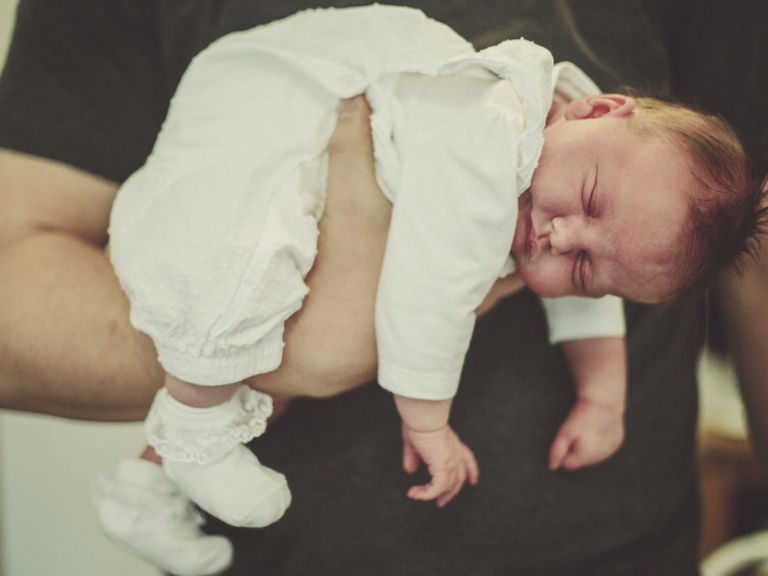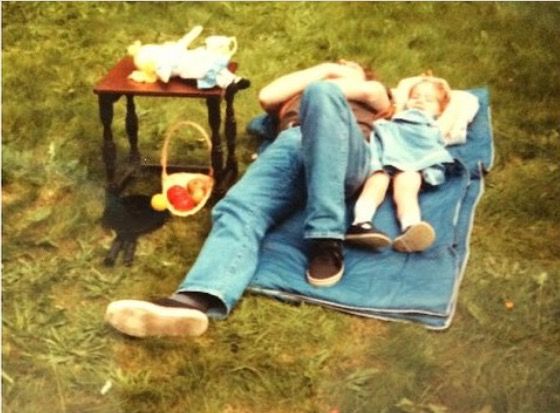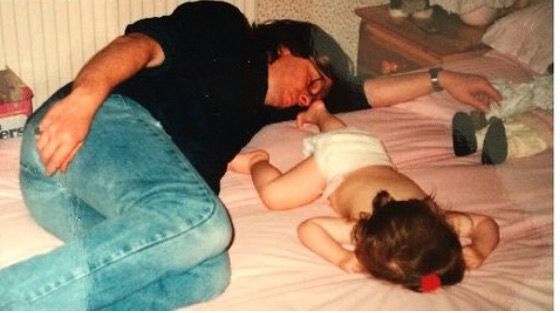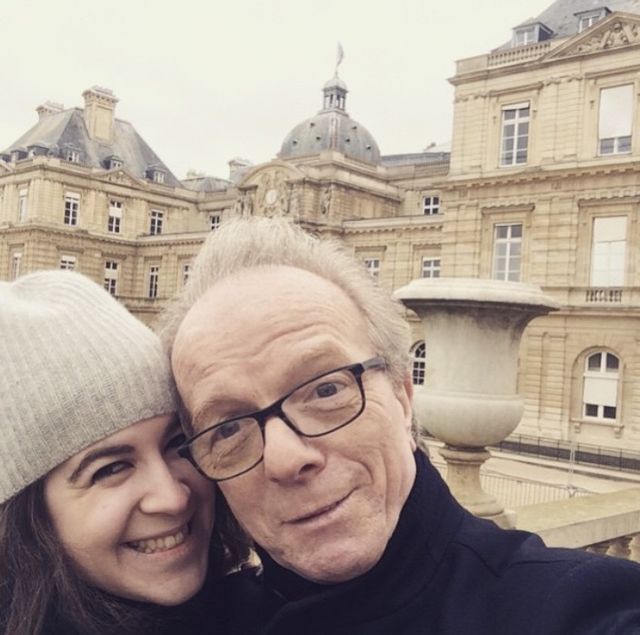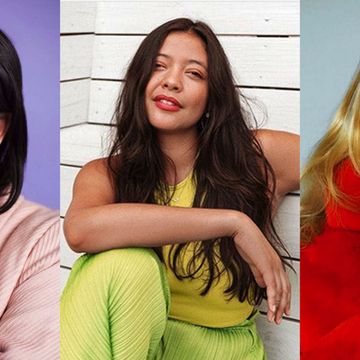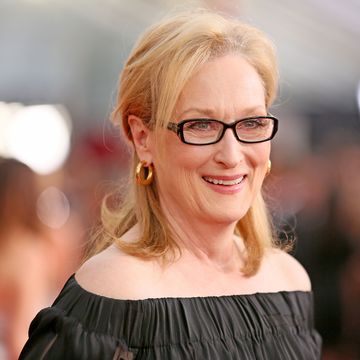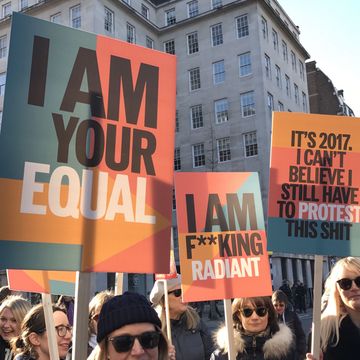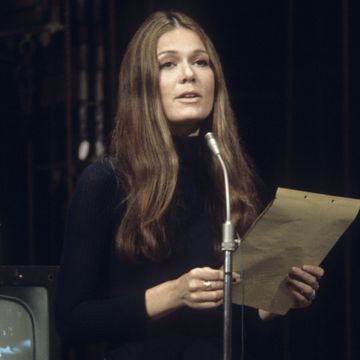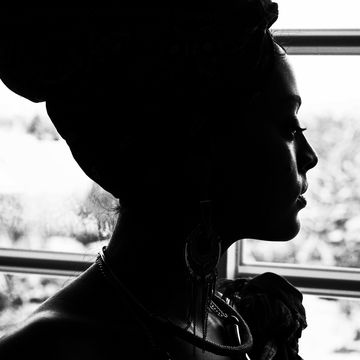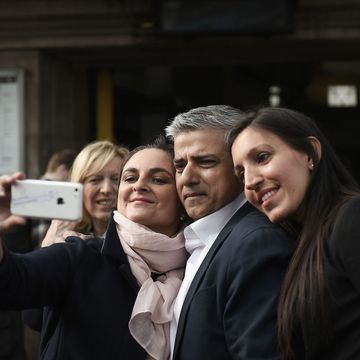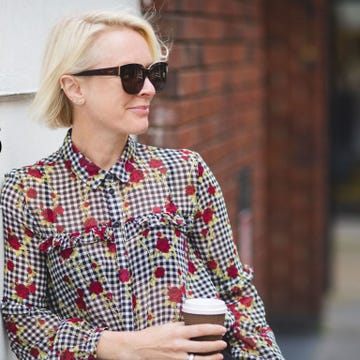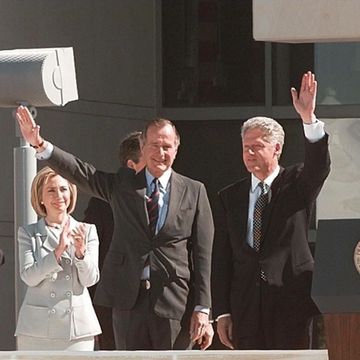When I was five, a boy in my class asked me if my mum was dead. Straight-up, out-of-the blue, just asked me. It was a weird question, but when you're five you start to panic. Does he know something I don't? Did the monster under my bed eat her?
My mum wasn't dead. The reason this kid thought she was? She wasn't ever picking me up from school: my dad was.
It was 1994, the year of Four Weddings and a Funeral, of Oasis' debt album, of Tony Blair's labour leadership triumph. The year Israel and Jordan signed a peace treaty, and the first women were ordained as priests in the Church of England. It was also, apparently, the year that a stay-at home, happily married dad picking his daughter up from school was such a rare, jaw-dropping sight that the only explanation was a dead mother.
But this wasn't just the innocent inquisition of a fellow five-year-old. From a startling young age, I felt like I was consistently having to explain my family to people. Teachers would call my mum when I was sick and I would remind them, again, to call my Dad. They would ask when she was picking me up and I, again, would have to remind them that my Dad would be. A fair few times, a new dinner lady would wonder: 'who is that man at the gates?' as if my father was a lingering sex-offender and not a parent.
Even during class, questions would frequently be posed via everyday scenarios in order to make them more accessible.
'When mummy does the shopping for your dinner, and buys three fish fingers and picks up one more, how many fish fingers does she have?' This line of questioning confused me: mummy doesn't do the shopping and she definitely doesn't cook dinner. So how would I know how many fish fingers she has?
My family set up, I quickly learnt, was unusual. Back in 1988, when my mum announced she was pregnant, it was my dad who made the decision to step up: he quit his job, moved from Paris to London and became a full-time parent.
Even today, that choice would be fairly surprising. My Dad had the high-flying career as a sales executive while mum worked as a primary school teacher. He had bigger pay packet, not her. But my mum loved her job and my dad knew it. He didn't want to uproot the woman he loved, take her away from a school she adored and a career to which she had dedicated her life.
Yet, perhaps the most important reason my Dad gives whenever I ask him why he made this decision, is this: 'I just really wanted to be a father.'
My parents weren't doing it to make a statement; to stick two fingers up to the man like some sort of woke AF 40-year-olds. They were doing it because it was fair and it made sense to them as a family. That, to me, is the beauty of their decision. The idea that my mother would automatically be the primary caregiver because she had a pair of boobs was, in my Dad's words 'never part of the discussion.'
Their decision undoubtedly had an effect on me. Whether I realised it or not, I became a feminist at a very young age. At every turn, there was a needless impediment to our situation. My father had to battle to use the women's bathrooms to he had access to the baby changing facilities. He had to deal with raised eyebrows at the playground, questions from doctors and teachers over 'where my mother was' and, most maddening of all, he had to stand up to less open-minded men, many in my own family, who ridiculed him.
I once walked in on a family friend ribbing my father at a party in our home. He was prodding him and asking if 'the missus let you drink' and 'why aren't you wearing your apron?"
I yelled at him and told him to get out of our kitchen. I was nine-years-old.
I was mad that I consistently had to defend my normal, but also that our family wasn't considered normal in the first place. My Dad is my best friend. We go on annual holidays to his native Paris together, we have movie nights when I'm at home, we'll discuss anything together over a glass of wine, from politics to boys. It's my Dad - not just my brilliant, dynamic mother - who has set a feminist example to me. Because he showed me that equality was achievable from the minute I was born.
I know many stay at home dads now- many of them fellow journalists - and I cannot praise them enough. Yet it would be so wonderful if their choice were not extraordinary but absolutely, run-of-the-mill ordinary. 'How does he do it? He has two kids and a career? Can men really have it all?' I cannot wait till these phrases are in common parlance. Because the mind-numbingly simple question here is: why aren't they?
It's something that I've been thinking about a lot lately, particularly because I am in a serious relationship. I realised that this was such a no-brainer for me that, on a boozy night out with my boyfriend, I drunkenly declared we could not be together unless he agreed to take paternity leave…for our utterly unborn, unconceived future offspring.
I woke up the next day with a stonking hangover, mortified that I had thrown down a gauntlet about children we hadn't even discussed having. I told him so, yet he looked at me incredulous: 'Why wouldn't that be a normal discussion if we have kids? Why do you think I would ever assume you'd give up your job?"
So maybe the tide is turning after all. Or maybe that old adage is true: girls really do end up with guys who are just like their fathers.
